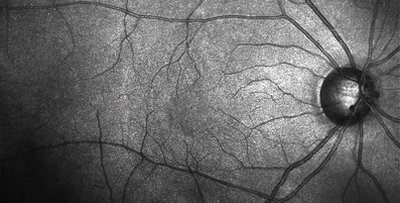Results from phase 2b RESTORE trial of MCO-010 for treatment of retinitis pigmentosa
Published on MedED: 3 May 23
Type of article: Clinical Research Update
MedED Catalogue Reference: MOT008
Compiler: Linda Ravenhill
SourcesL Clinical Trial Arena, Nature, America Academy of Ophthalmology, Neurophotonics, Ophthalmology Times
Key Take Aways
1. Multi-Characteristic Opsin -10 (MC0 -10) therapy is an optogenetic monotherapy for the treatment of Retinitis pigementosa.
2. It is the only drug of its type currently in clinical trials.The FDA has granted it both orphan drug & fast track designations.
3. It is administered via a single intravitreal injection,as an in-room treatment, with no further support therapy required
4. 100% of the MCO-010 of treated patients from the Phase2 trial showed vision improvement in Multi-Luminance Y-Mobility Test (MLYMT), Multi-Luminance Shape Discrimination Test (MLSDT) and Best-Corrected Visual Acuity scores, and there were no recorded serious adverse events.
US-based company Nanososcope Therapeutics Inc. has presented the key efficacy results from Phase IIb of its RESTORE trial, investigating the use of MCO-010 in patients with retinitis pigmentosa (RP).
RP is a group of rare genetic disorders linked to more than 100 gene mutations. A progressive loss of rod and cone photoreceptors and abnormalities of the retinal pigment epithelium characterise the disease. RP patients experience a progressive loss of vision, the first indication of which is often a decrease in night vision, increasing photophobia and an inability to see in low light. As the disease advances, these patients develop tunnel vision and partial (legal) or complete blindness.2
The disease is thought to affect an estimated 2 million people globally, making it the most common of all retinal diseases. 1, 3, 4, 6

Currently, there are no treatments to halt or reverse the condition. It is hoped that recent advances in cell and gene therapies may hold the key to improved outcomes for these patients.
While many gene therapies focus on treating patients with specific outer retinal cell mutations, Multi-Characteristic Opsin -10 (MC0 -10) therapy is an optogenetic monotherapy targeting inner retinal neurons. It is the only broadband, most-light sensitive opsin currently being trialled, and it is hoped it may restore vision in retinal degenerative disease regardless of gene mutations.
The drug is administered as a single intravitreal injection, and it uses a proprietary AAV2 vector to facilitate the robust transduction of MCO-010 in bipolar cells. It is suitable for in-office administration and requires no additional supporting treatment.4
Method
Phase 2b of the RESTORE trial was a double-masked, sham-controlled trial:
-
27 patients with severe vision impairment due to RP were enrolled
-
18 patients were administered a single dose of MCO-010
-
Nine patients received a sham intravitreal injection.
.
Key Endpoints
The primary endpoint measured the efficacy of a single intravitreal dose.
-
Multi-Luminance Y-Mobility Test (MLYMT), Multi-Luminance Shape Discrimination Test (MLSDT), and Best-Corrected Visual Acuity (BCVA) scores were used to evaluate the endpoint efficacy.
-
"A change of two or more luminance levels in the MLYMT and MLSDT scoring system, and a 0.3 LogMAR in the BCVA score were considered clinically meaningful." 4
Outcomes
16 out of 18 patients receiving MCO-010 met the efficacy threshold.
Of the candidates who received the MCO-010 treatment, the composite outcomes in key efficacy measures at 12-months were:" 4
• 100% of treated patients showed vision improvement in the MLYMT, MLSDT or BCVA compared to 5 of the 9 patients receiving placebo
• 17 patients showed vision improvement in the MLYMT or BCVA compared to 4 of 9 patients who received the placebo
• 16 patients demonstrated a 2 or more luminance level improvement in the MLYMT or MLSDT compared to 4 of of 9 patients who received the placebo
• 14 patients showed vision improvement in the MLSDT or BCVA compared to 3 of 9 patients who received the placebo
Adverse Events
-
No reported serious adverse events for MCO-010 treated patients.
-
Anterior chamber cells, ocular hypertension, and conjunctival haemorrhage were the most commonly reported treatment emerging side effects.
Conclusion
Phase 2b RESTORE trial of MCO-010 demonstrated improvement in vision-guided mobility, shape discrimination and visual acuity in patients with advanced RP. Given this efficacy and the absence of serious adverse events, the company will enter into discussions with the FDA to expedite the drug to market.3
Access the Clinical trial information
References:
1. Berry, M.H., Holt, A., Salari, A. et al. Restoration of high-sensitivity and adapting vision with a cone opsin. Nat Commun 10, 1221 (2019). https://doi.org/10.1038/s41467-019-09124-x Accessed 2 May 23. https://www.nature.com/articles/s41467-019-09124-x
2. Ferrari, S., Di Iorio, E., Barbaro, V., Ponzin, D., Sorrentino, F. S., & Parmeggiani, F. (2011). Retinitis pigmentosa: genes and disease mechanisms. Current genomics, 12(4), 238–249. https://doi.org/10.2174/138920211795860107 Accessed 3 May 23 https://pubmed.ncbi.nlm.nih.gov/22131869/
3. Fultinaviciute, U. ( 2023, April 24). Nanoscope reveals key efficacy data from Phase IIb ophthalmology trial. Clinical Trials Arena. Accessed 2 May 2023. https://www.clinicaltrialsarena.com/news/nanoscope-therapeutics-retinitis-pigmentosa-mco-010/
4. Hutton, D. ( 2023, April 28.) Nanoscope Therapeutics presents results from phase 2b RESTORE trial of MCO-010 for treatment of retinitis pigmentosa. Ophthalmology Times. Accessed 2 May 2023. https://www.ophthalmologytimes.com/view/nanoscope-therapeutics-presents-results-from-phase-2b-restore-trial-of-mco-010-for-treatment-of-retinitis-pigmentosa
5. Mukamal, R. (2021, April 13)New Treatments for Retinitis Pigmentosa. American Academy for Ophthalmology. Accessed 3 May 2023. https://www.aao.org/eye-health/tips-prevention/gene-therapy-new-retinitis-pigmentosa-lca-luxturn
6. O'Neal TB, Luther EE. Retinitis Pigmentosa. [Updated 2023 Feb 19]. In: StatPearls [Internet]. Treasure Island (FL): StatPearls Publishing; 2023 Jan-. Available from: https://www.ncbi.nlm.nih.gov/books/NBK519518/
7. Terakita, A. The opsins. Genome Biol 6, 213 (2005). https://doi.org/10.1186/gb-2005-6-3-213 https://genomebiology.biomedcentral.com/articles/10.1186/gb-2005-6-3-213#citeas
8. Wright, W., Gajjeraman, S., Batabyal, S., Pradhan, S., Bhattacharya, S., Mahapatra, V., Tripathy, A., & Mohanty, S. (2017). Restoring vision in mice with retinal degeneration using multicharacteristic opsin. Neurophotonics, 4(4), 041505. https://doi.org/10.1117/1.NPh.4.4.041505 Accessed 2 May 23. https://www.ncbi.nlm.nih.gov/pmc/articles/PMC5603575/
Disclaimer
This article is compiled from a variety of resources researched and compiled by the contributor. It is in no way presented as an original work. Every effort has been made to correctly attribute quotes and content. Where possible all information has been independently verified. The Medical Education Network bears no responsibility for any inaccuracies which may occur from the use of third-party sources. If you have any queries regarding this article contact us
Fact-checking Policy
The Medical Education Network makes every effort to review and fact-check the articles used as source material in our summaries and original material. We have strict guidelines in relation to the publications we use as our source data, favouring peer-reviewed research wherever possible. Every effort is made to ensure that the information contained here is an accurate reflection of the original material. Should you find inaccuracies, out of date content or have any additional issues with our articles, please make use of the contact us form to notify us.



